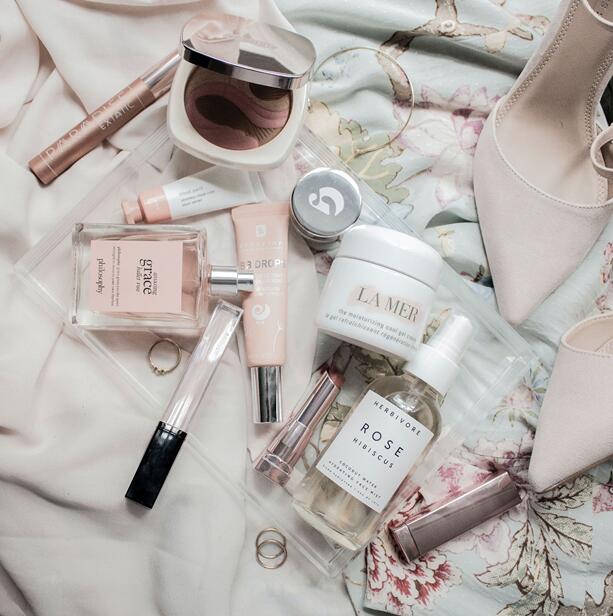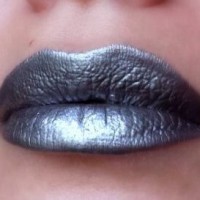If you ask us, there’s nothing better than playing with makeup. Cosmetics are wonderful tools you can use to enhance your natural beauty, boost your confidence, and generally express yourself — and best of all, it’s a lot of fun!
But for people with sensitive skin, the wrong makeup can be a one-way ticket to breakouts, irritation, and a whole lot of discomfort, inside and out.
How can you avoid this fate? Is makeup simply off the table for our sensitive-skinned friends? Of course not! Anyone can experience the joys of makeup, as long as they find the right products for their skin.

Here are a few tips to help you find the right products for you:
Understand Your Sensitivities
Playing with makeup is a very personal experience. Everything from the products you use to the looks you create is based on your preferences and your style! Likewise, it’s difficult to say that any one product is good for sensitive skin because no two people have the exact same sensitivities. Therefore, it’s important to get to know your skin before you pick up any products.
Are you prone to acne? Does your skin dry out easily? Do you suffer from redness and irritation
when you use certain products? Each of these issues speaks to a different type of sensitive skin — and people with these issues should be using (and avoiding) different types of makeup.
In fact, some people with sensitive skin may get a reaction from “all-natural” products: the makeup allegedly designed for their skin. This is because natural makeup usually features plant extracts like citrus or lavender, which can cause redness or other reactions for some users. Even “cooling” products, which are designed to soothe irritated skin, contain ingredients like peppermint oil or menthol that can make irritation worse for some users!
So, how do you know what products will irritate your skin? You start by paying attention to which products cause a reaction, or you can visit your dermatologist for a professional opinion.
Read the Labels
Once you understand the key irritants for your skin, you can hit your local cosmetics shop (or your local drugstore) and get ready to restock your makeup supply. You might head straight to a product labeled “gentle” or “natural,” or even reach for a vegan product (which, admittedly, are often great for sensitive skin).
But how can you be certain that these products will suit your unique skin type? Now that you know which ingredients will cause a breakout or other reaction, there’s only one way to find out: read the product ingredients.
It may seem obvious, but it bears repeating: read your product labels! Too often, makeup lovers grab products based on the look, the packaging, or even the branding. We know that these things can make a product seem irresistible (we’re trying to rock that Kylie lip, too), but please, think of your skin and make sure that must-have brand is a must-have for you.
And remember: just because a product is all-natural or cruelty-free doesn’t mean it’s the right product for your skin. While many people with sensitive skin react poorly to phthalates
(a common ingredient found in most liquid foundations), you could just as easily break out from a seemingly harmless ingredient like an essential oil.
No matter how safe you think a product is, always read the label and make sure it doesn’t contain anything that will irritate your skin.
Pay Attention to Expiration Dates
While we’re here, there’s something else you should peek at while you’re checking the label: the expiration date. Cosmetic shelf life is a very important element, and it can make a big difference in how the product affects your skin. Expired makeup can cause breakouts and even infection, and once these products are past their “best by” date, they don’t even work as well!
If you have sensitive skin, pay attention to these dates. Expired products pose a risk to anyone, but they are particularly harmful to people whose skin is already on the sensitive side. If you aren’t careful, your expired makeup can cause rashes or breakouts (which you’ll likely try to cover with that same makeup, creating a vicious cycle). Worse still, expired eye makeup (particularly mascara) may increase your risk of infections.
Leave Fragrances on the Shelf
Nearly all makeup has additives that try to set it apart from the competition. Some products might be infused with collagen for anti-aging effects. Some might use Vitamin E for extra moisturizing power. In some cases, these additives are totally fine (remember, it depends on your skin and your specific irritants), but there’s one ingredient that everyone with sensitive skin should avoid: added fragrance.
Fragrances in skincare and makeup products are purely aesthetic; they smell nice, so they make us feel nicer when we use them. However, fragrance can react with your skin in a volatile and aggressive way, causing damage to the cells that sometimes isn’t even visible to the naked eye. This reaction can happen to anyone, but it’s especially damaging for individuals with sensitive skin.
It is important to remember that not all nice-smelling products contain added fragrances. For example, a natural product that contains fruit extract will still smell nice despite containing no added fragrances (but remember: fruit extract can cause a reaction, too. Know your skin and read the label). The only way to know if a product contains artificial fragrance is to — let’s say it again — check the ingredients! Take the time to scan that label and then leave the extra fragrance on the shelf!
Listen to Your Skin
Let’s say that you’ve done everything you were supposed to here. You’ve learned about your skin sensitivities, you tossed your expired products, you’ve read every label in your local Sephora, and you think you’ve found the perfect product for your skin.
But when the big moment comes and you finally put it on, you notice a tingling sensation in your cheeks. What should you do?
Remove your makeup. This is true for when you’ve noticed a potential problem, but also important for your daily skincare routine. Just as you have a makeup routine, be sure to practice good hygiene every morning and night to nurture your skin after using makeup.
Unfortunately, using makeup with sensitive skin can sometimes feel like solving a mystery. Even when you’ve done all your due diligence, you might discover that a product still isn’t right for your skin type. It’s important to pay attention to your skin, feel for signs of irritation, and take something off if it doesn’t feel right.
Many skin care professionals, from dermatologists to makeup artists, will suggest testing a new product on the underside of your wrist before putting it on your face. There are two reasons to do this: it helps you find a foundation to match your skin, and it helps you determine if a product will cause a reaction. The skin on your wrist is very sensitive, and it can tell you if a product is suitable before you apply it all over your beautiful face.
We know that playing with makeup is fun, but at the end of the day, taking care of your skin is even better. Listen to your skin, make sure you’re only applying products that keep it healthy and beautiful, and you’ll feel better than ever!


